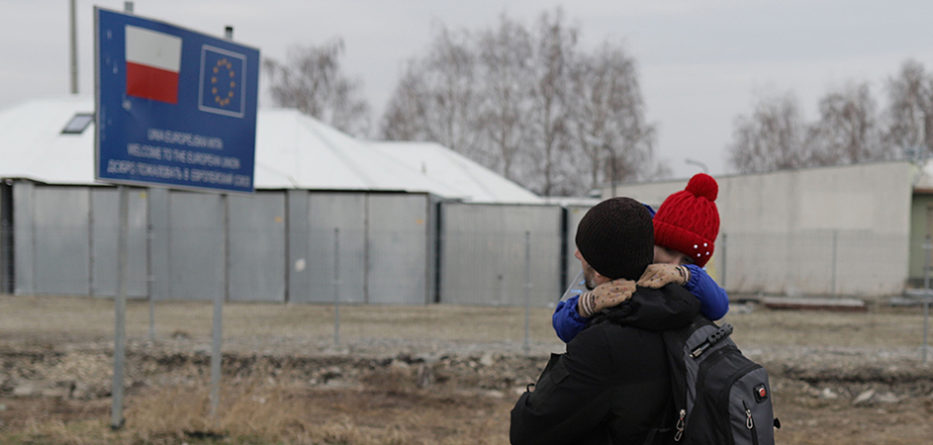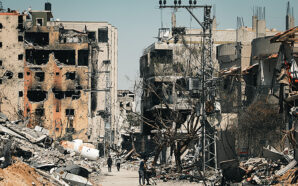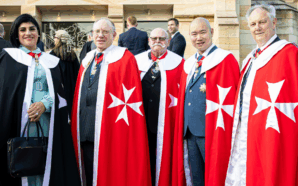Homily for the Third Sunday of Lent
Readings: Exodus 3:1-8, 13-15; Psalm 102; 1 Corinthians 10:1-6,10-12; Luke 13:1-9
20 March 2022
The day after the canonisation of Mary MacKillop in Rome back in October 2010, there was a mass for the Australians in attendance at St Pauls Outside the Walls. As mass was about to start, an Aboriginal woman from the Kimberley quietly whispered to me, asking if it would be all right for her to remove her shoes. She was on holy ground. The dignity and solemnity of the moment has stayed with me. In today’s first reading, Moses is simply going about his daily chores tending the flock of his father-in- law. He beholds the burning bush. He approaches and hears those words: ‘Take off your shoes, for the place on which you stand is holy ground.’
Listen at https://soundcloud.com/frank-brennan-6/homily-20322
The poet Elizabeth Barrett Browning writes:
‘Earth’s crammed with heaven,
And every common bush afire with God,
But only he who sees takes off his shoes;
The rest sit round and pluck blackberries.’
Others have opined that only those who take off their shoes can see. After a meeting with the God of Abraham, the God of Isaac and the God of Jacob, Moses is commissioned to go and liberate his people from oppression at the hands of the Egyptians. Each of us also receives some commission from God, a commission to be discerned and enacted.
In today’s gospel from Luke, we hear of two incidents which are unique to Luke. First there is the report of Pilate sacrilegiously and callously mixing the blood of Galileans with the blood of their victims. When Jesus hears the report, he asks the audience, ‘Do you suppose these Galileans who suffered like that were greater sinners than any other Galileans?’ The scripture scholar M Dennis Ham explains that Jesus’ ‘response about the possible guilt of the Galilean victims appears to be a way of saying, in effect, “Are you concerned about the Galileans’ sinfulness, or Pilate’s? I’m talking to you about your own need for repentance. Your failure to respond to my call to repent will be more of a disaster than those Galileans’ deaths in the temple.”’[1]
Then we hear of the deadly accident when the tower at Siloam fell killing 18 innocent bystanders. Those who suffered were no more guilty than anyone else living in Jerusalem at the time. Their fate was not punishment for sin. But their fate provides us with the opportunity to reflect on our own lives and situation and to repent. Like the barren fig tree which has failed to produce fruit the last three years, we are always to be given one more chance and we are to be judged by our fruits.
There’s something arresting about Luke’s specifying of 18 innocent people being killed by the collapsing tower at Siloam. It’s like the evocative image published this weekend of the 109 empty baby strollers in the city square at Lviv reminding the world that the Russian army has thus far killed 109 children during the invasion of Ukraine, all in the name of restoring Russia to its former glory. The image of those empty strollers provides us with the opportunity to reflect on our own lives and situation and to repent.
We continue to enjoy peace and security under a world order which was powerless to protect those 109 children. The UN Security Council is powerless to act even though the Russian Federation is committing a clear violation of the UN Charter and is engaged in an unlawful act of aggression. Expert international lawyers have said that all ‘states [including Australia] must cooperate to bring this aggression to an end through lawful means; they must not recognize as lawful any situation it creates; nor may they render aid or assistance in maintaining the situation.’[2]
In his recent address to the US Congress, Ukraine’s President Zelenskyy spoke of the sacrifice and commitment of his people:
‘Today the Ukrainian people are defending not only Ukraine, we are fighting for the values of Europe and the world, sacrificing our lives in the name of the Future.
…..
‘Now I am almost 45 years old. Today my age stopped when the hearts of more than 100 children stopped beating. I see no sense in life if it cannot stop death. And this is my main mission as the Leader of my people.’[3]
Here safe on the other side of the world, we should find Zelenskyy’s words not only inspiring, but challenging. What more could I do? What more could we do to make the world a safer place? What more could we do to ensure that the Lviv central square is not filled to overflowing with empty baby strollers? This is a call to each of us to discern what the Lord is asking of us, troubled as we are by the images now confronting us. It’s about much more than rising petrol prices.
In his 2018 Apostolic Exhortation Gaudete et Exsultate (‘Be Glad and Rejoice’), Pope Francis says:
‘Spiritual discernment does not exclude existential, psychological, sociological or moral insights drawn from the human sciences. At the same time, it transcends them. Nor are the Church’s sound norms sufficient. We should always remember that discernment is a grace. Even though it includes reason and prudence, it goes beyond them, for it seeks a glimpse of that unique and mysterious plan that God has for each of us, which takes shape amid so many varied situations and limitations. It involves more than my temporal well-being, my satisfaction at having accomplished something useful, or even my desire for peace of mind. It has to do with the meaning of my life before the Father who knows and loves me, with the real purpose of my life, which nobody knows better than He. Ultimately, discernment leads to the wellspring of undying life: to know the Father, the only true God, and the one whom He has sent, Jesus Christ. It requires no special abilities, nor is it only for the more intelligent or better educated. The Father readily reveals himself to the lowly.’[4]
Let’s draw all the insights we can from the human sciences; let’s use reason and prudence; but let’s look to more than our own temporal well-being, our own accomplishments, and our own peace of mind. Let’s open our eyes to the world; let’s take off our shoes because we’re on holy ground. Let’s discern what the Lord is asking of us. Let’s repent; and let’s bear fruit this Lent lest we go the way of the barren fig tree. If that city square in Lviv overflows with baby strollers, the farmer in the parable might return to us in the west and say, ‘Yet again, this fig tree is not bearing fruit. Cut it down. Why should it be taking up the ground?’
The Lord is compassion and love,
Slow to anger and rich in mercy.
For as the heavens are high above the earth
So strong is his love for those who fear him.
[1] M Dennis Ham, ‘Luke’, in The Paulist Biblical Commentary, Paulist Press, New York, 2018, 1030 at p. 1072
[2]Statement by Members of the International Law Association Committee on the Use of Force, 4 March 2022, available at
[3] See https://www.president.gov.ua/en/news/promova-prezidenta-ukrayini-volodimira-zelenskogo-pered-kong-73609
[4] Pope Francis, Gaudete et Exsultate, 2018, #170
Fr Frank Brennan SJ is the Rector of Newman College, Melbourne, and the former CEO of Catholic Social Services Australia (CSSA). He has been appointed a peritus at the Fifth Plenary Council of the Australian Catholic Church.








